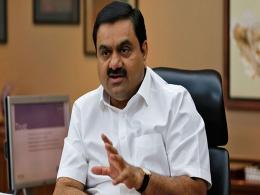An expert committee set by RBI chief Raghuram Rajan last year has recommended major overhaul of the working of the Indian central bank by making consumer inflation key in policy decision, monetary policy to be decided by a committee and new instruments to manage the system.
The most significant move would be making consumer inflation key as against the use of wholesale or producer price index as the cornerstone of monetary policy at present. The consumer price index (CPI) has been rising much faster than wholesale price index (WPI) and one effect of the recommendation, once accepted, would make the RBI push for higher interest rates till consumer prices moderate.
The committee headed by RBI deputy governor Urijit Patel, said inflation should be the nominal anchor for the monetary policy framework and predominant objective of RBI in its policy statements. It added that policy should target inflation of 4 per cent with a band of +/- 2 per cent around it to factor in the external shocks and the weightage of food in the index. At present the RBI seeks to bring WPI within its comfortable zone of 5 per cent.
In its report the committee said this target should be set in the frame of a two-year horizon that is consistent with the need to balance the output costs of disinflation against the speed of entrenchment of credibility in policy commitment.
However, in view of the elevated level of CPI, which currently is hovering around the 9-10 per cent mark and may induce hawkish monetary stance, the report said that the transition path to the target zone should be gradual. It said the policy should seek to bring it down to 8 per cent over 12 months and to 6 per cent over two years before formally adopting the recommended target.
The committee said the central government needs to ensure that its fiscal deficit as a ratio to GDP is brought down to 3 per cent by 2016-17 to manage the fiscal side of the economy better. It also pushed for eliminating the current system of administered setting of prices, wages and interest rates.
In another significant move the committee said the monetary policy decision-making should be vested in a monetary policy committee or MPC which would be similar to many other central banks including the US Fed.
The RBI governor would be the chairperson of the MPC and the deputy governor in charge of monetary policy will be the vice chairman with the executive director in charge of monetary policy being a member.
Two other members will be external, to be decided by the chairman and vice chairman on the basis of demonstrated expertise and experience in monetary economics, macroeconomics, central banking, financial markets, public finance and related areas, it noted. It added that the term of office would be three years, without the prospect of renewal.
Each member of the MPC will have one vote with the outcome determined by majority voting, which has to be exercised without abstaining. Minutes of the proceedings of the MPC will be released with a lag of two weeks from the date of the meeting.
The MPC will ordinarily meet once every two months, although it should retain the discretion to meet and recommend policy decisions outside the policy review cycle.
The chairman, or in his absence the vice chairman, shall exercise a casting vote in situations arising on account of unforeseen exigencies necessitating the absence of a member for the MPC meeting in which voting is equally divided.
The report also said the MPC should be made accountable and failure would be defined as the inability to achieve the inflation target for three successive quarters. “Such failure will require the MPC to issue a public statement, signed by each member, stating the reason(s) for failure, remedial actions proposed and the likely period of time over which inflation will return to the centre of the inflation target zone,” it said.
Referring to the operating framework of the policy it said in the first or transitional phase, the weighted average call rate will remain the operating target, and the overnight LAF repo rate will continue as the single policy rate. The reverse repo rate and the MSF rate will be calibrated off the repo rate with a spread of (+/-) 100 basis points, setting the corridor around the repo rate. The repo rate will be decided by the MPC through voting.
The report added that in the second phase, as term repos for managing liquidity in the transition phase gain acceptance, the “policy rate” voted on by the MPC will be a target rate for the short end of the money market, to be achieved through active liquidity management.
The expert committee also recommended bringing new instruments to the toolkit of monetary policy. This includes, a standing deposit facility (analogous to the marginal standing facility for lending purposes) to provide a floor for the new operating framework for absorption of surplus liquidity from the system but without the need for providing collateral in exchange. It may also be used for sterilisation operations.
It also suggested adding term repos of longer tenor may also be conducted since term repo market segments could help in establishing market based benchmarks for a variety of money market instruments and shorter term deposits/loans.
The report call for phasing out dependence on market stabilisation scheme (MSS) and cash management bills (CMBs), consistent with government debt and cash management being taken over by the government’s Debt Management Office.
It said all sector specific refinance should be phased out and Statutory Liquidity Ratio or SLR should be reduced to a level in line with the requirements of liquidity coverage ratio (LCR) prescribed under the Basel III framework.
The committee said that the government should eschew suasion and directives to banks on interest rates that run counter to monetary policy actions.
Talking about small savings and taxation herein it said all fixed income financial products should be treated on par with bank deposits for the purposes of taxation and TDS. Furthermore, the tax treatment of FMPs and bank deposits should also be harmonised.
The report also touched upon subventions and said with a sharp rise in the ratio of agricultural credit to agricultural GDP, the need for subventions on interest rate for lending to certain sectors would need to be re-visited.
It said that it is necessary to develop a culture of establishing external benchmarks for setting interest rates out of which financial products can be priced. “Ideally, these benchmarks should emerge from market practices. RBI could explore whether it can play a more active supportive role in its emergence,” the report added.
The committee said Open Market Operations (OMOs) have to be detached from fiscal operations and instead linked solely to liquidity management. It added that OMOs should not be used for managing yields on government securities.
While the committee has clearly spelled out inflation as the cornerstone of monetary policy it added that flexibility in the determination of the exchange rate while managing volatility through capital flow management (CFM) and macro-prudential measures (including sector specific reserve requirements).
Referring to inflows that are excessive in relation to external financing requirements and the need for sterilised intervention it said the RBI should build a sterilisation reserve out of its existing and evolving portfolio of GoI securities across the range of maturities, but accentuated towards a ‘strike capability’ to rapidly intervene at the short end.
As a buffer against outflows, the RBI’s strategy should be to build an adequate level of foreign exchange reserves, adequacy being determined not only in terms of its existing metrics but also in terms of intervention requirements set by past experience.
The report said that as a second line of defence, swap arrangements, including with regional financing initiatives, should be actively pursued.
(Edited by Joby Puthuparampil Johnson)







